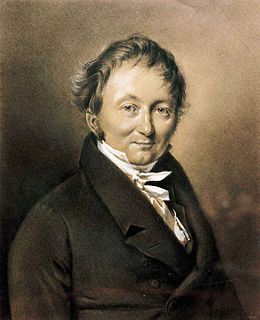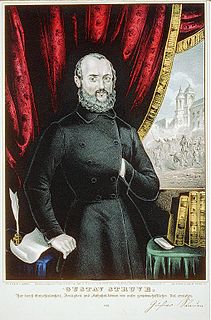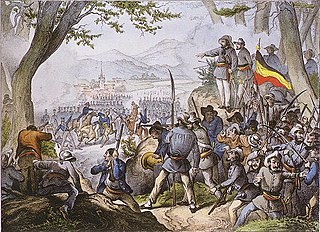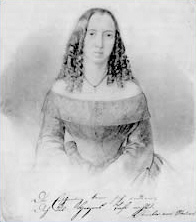Herman Kiefer | |
|---|---|
 |
Herman Kiefer (19 November 1825 Sulzburg, Grand Duchy of Baden – 11 October 1911), also spelled Hermann Kiefer, was a physician, politician and diplomat of the United States.
Herman Kiefer | |
|---|---|
 |
Herman Kiefer (19 November 1825 Sulzburg, Grand Duchy of Baden – 11 October 1911), also spelled Hermann Kiefer, was a physician, politician and diplomat of the United States.
He was the only son of a physician, Conrad Kiefer. His mother was a daughter of the gardener of the Grand Duke in Karlsruhe. Thus, he was brought up in a conservative environment and trained to respect the established order of things. He attended gymnasia at Freiburg, Mannheim, and Karlsruhe. His childhood hero was Frederick the Great. He wrote his first poem, "The Death of Socrates," in 1839, while at Freiburg. He continued writing poems for the rest of his life, and spent much of his youth wandering in the Black Forest. At Mannheim, Karl Blind was his mentor and introduced him to the circle of Gustav Struve. He studied medicine at Freiburg (1844–1845; 1846–1847; 1848–1849), Heidelberg (1845–1846), Prague (one semester, 1848), and Vienna (one semester, 1848). He passed his state examinations at Carlsruhe, and received his license to practice medicine on 29 May 1849. In Heidelberg, he was a member of Corps Suevia society; in Freiburg, he joined a Turnerverein, and helped found the Alberta society.
He was a delegate to the Offenburg meetings of 12 September 1847 and 19 March 1848, and chairman of the mass meeting at Freiburg on 26 March 1848. He served as surgeon to the Army of the Republic of Baden (the revolutionaries) in the volunteer regiment of Emmendingen during the revolution of 1849, taking part in the battle of Philippsburg (20 June 1849) and Ubstadt (23 June 1849). On the advice of a family friend to his father, he became a fugitive on 10 July 1849, Strassbourg being the initial target of his flight.
He arrived in the United States in September 1849, and settled in Detroit in October, where he began the practice of medicine on the 19th of that month. He was actively interested in German-American affairs. He gave the oration for the celebration of the centennial of Friedrich Schiller's birth in Detroit in 1859, and was a founder of the German-American seminary, of which he was president and treasurer 1861-1872. He was a member of the Detroit Board of Education 1866-1867, and in 1882 he became a member of the Public Library Commission, being re-elected in 1883 for a term of six years, and adding to the library a large collection of German works. He was a regent of the University of Michigan 1889-1901.
He was chairman of the German Republican executive committee of Utica in 1854, a presidential elector in 1872, and a delegate to the Republican National Convention of Cincinnati in 1876. In 1883 he was appointed by President Arthur U.S. Consul to Stettin, which office he held until he resigned in 1885. He prepared valuable articles, which were published in the U. S. consular reports, and include American Trade with Stettin, How Germany is Governed, and Labor in Europe.
He married Franciska Kehle of Bonndorf on 21 July 1850. She died 6 August 1909. They had nine children, of whom six, five sons and a daughter, survived into adulthood.
The Herman Kiefer Hospital was named after him. It was the Detroit public health hospital for 100 years. His namesake building was built in 1928, and used as a hospital until 2013 (85 years).
This article needs additional citations for verification .(April 2013) |

Mannheim, officially the University City of Mannheim, is the second-largest city in the German state of Baden-Württemberg after the state capital of Stuttgart, and Germany's 21st-largest city, with a 2020 population of approximately 309,119 inhabitants. The city is at the centre of the Rhine-Neckar Metropolitan Region, Germany's eighth-largest metropolitan region.

Karl Freiherr von Drais was a noble German forest official and significant inventor in the Biedermeier period. He was born and died in Karlsruhe.

Gustav Struve, known as Gustav von Struve until he gave up his title, was a German surgeon, politician, lawyer and publicist, and a revolutionary during the German revolution of 1848-1849 in Baden Germany. He also spent over a decade in the United States and was active there as a reformer.

Friedrich Franz Karl Hecker was a German lawyer, politician and revolutionary. He was one of the most popular speakers and agitators of the 1848 Revolution. After moving to the United States, he served as a brigade commander in the Union Army during the American Civil War.

Karl Zell was a German statesman, philologist, and defender of the rights of the Catholic Church.

Karl Mathy, was a Badensian statesman.

Lorenzo Brentano was a German American revolutionary, journalist, and later a U.S. Representative from Illinois.
Johann Hofer was a German lawyer.

The Grand Duchy of Baden was an independent state in what is now southwestern Germany until the creation of the German Empire in 1871. It had its own state-owned railway company, the Grand Duchy of Baden State Railways, which was founded in 1840. At the time when it was integrated into the Deutsche Reichsbahn in 1920, its network had an overall length of about 2,000 kilometres (1,200 mi).
Gustav Nikolaus Tiedemann was a German soldier who joined the revolutionaries during the Revolutions of 1848 in Germany, eventually becoming the commander of the last holdout of the revolution, the fortress at Rastatt.

The Baden main line is a German railway line that was built between 1840 and 1863. It runs through Baden, from Mannheim via Heidelberg, Karlsruhe, Offenburg, Freiburg, Basle, Waldshut, Schaffhausen and Singen to Constance (Konstanz). The Baden Mainline is 412.7 kilometres long, making it the longest route in the Deutsche Bahn network and also the oldest in southwest Germany. The section between Mannheim and Basle is the most important northern approach to the Swiss Alpine passes, whilst the section between Basle and Constance is only of regional significance. The stretch from Karlsruhe to Basle is also known as the Rhine Valley Railway (Rheintalbahn) and the Basle–Constance section as the High Rhine Railway (Hochrheinstrecke).

The Main-Neckar Railway is a main line railway west of the Odenwald in the Upper Rhine Plain of Germany that connects Frankfurt am Main to Heidelberg via Darmstadt, Bensheim and Weinheim. It was opened in 1846 and is one of the oldest railways in Germany.

The Mannheim–Karlsruhe–Basel railway is a double-track electrified mainline railway in the German state of Baden-Württemberg. It runs from Mannheim via Heidelberg, Bruchsal, Karlsruhe, Rastatt, Baden-Baden, Offenburg and Freiburg to Basel, Switzerland. It is also known as the Rhine Valley Railway or the Upper Rhine Railway (Oberrheinbahn).

The Hecker uprising was an attempt in April 1848 by Baden revolutionary leaders Friedrich Hecker, Gustav von Struve, and several other radical democrats to overthrow the monarchy and establish a republic in the Grand Duchy of Baden. The uprising first major clash in the Baden Revolution and among the first in the March Revolution in Germany, part of the broader Revolutions of 1848 across Europe. The main action of the uprising consisted of an armed civilian militia under the leadership of Friedrich Hecker moving from Konstanz on the Swiss border in the direction of Karlsruhe, the ducal capital, with the intention of joining with another armed group under the leadership of revolutionary poet Georg Herwegh there to topple the government. The two groups were halted independently by the troops of the German Confederation before they could combine forces.
The Baden Revolution of 1848/1849 was a regional uprising in the Grand Duchy of Baden which was part of the revolutionary unrest that gripped almost all of Central Europe at that time.

Knut Jungbohn Clement was a Danish linguist.

The Grand Duchy of Baden was a state in the southwest German Empire on the east bank of the Rhine. It existed between 1806 and 1918.

Amalie Struve was a democratic radical participant in the 1848 March Revolution. She is also remembered as an early feminist and author.
Franz Schnabel was a German historian.
Anton Stabel was a Baden lawyer, judge and statesman. For a number of years he was the Grand Duchy's senior judge. Subsequently, following a succession of ministerial appointments, he became president of the council of ministers and minister of state , serving between 1861 and 1866. He is remembered, most particularly, for a series of exemplary Judicial and Court reforms.
Attribution: